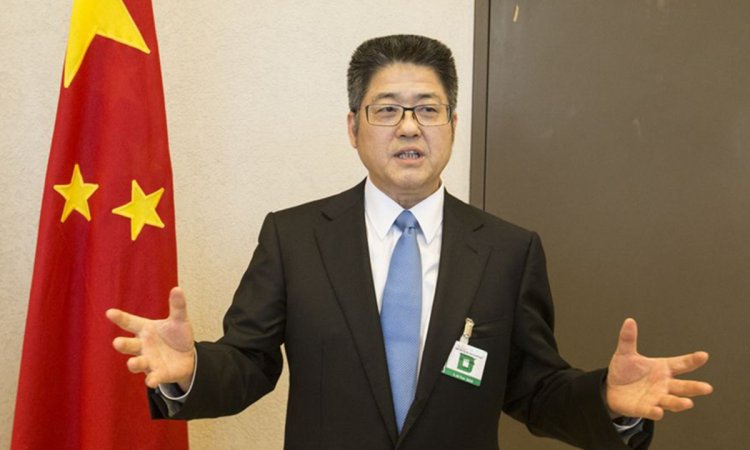Analysing Chinese Vice Foreign Minister Le Yucheng’s Strategy Statement
STORIES, ANALYSES, EXPERT VIEWS

In a reference to the Quad, Chinese Vice Foreign Minister Le Yucheng said 19 March has drawn parallels between “the NATO strategy of eastward expansion in Europe” and the creation of “small blocs” and “group confrontation” in the Indo-Pacific, the region that China calls Asia-Pacific.
“The Ukraine crisis provides a mirror for us to observe the situation in the Asia-Pacific. We cannot but ask, how can we prevent a crisis like this from happening in the Asia-Pacific?”.
“The Asia-Pacific now faces two opposite choices: should we build an open and inclusive family for win-win cooperation or go for small blocs based on the Cold War mentality and group confrontation?” Le said.
“Going against the trend to pursue the Indo-Pacific strategy, provoke trouble, put together closed and exclusive small circles or groups, and get the region off course toward fragmentation and bloc-based division is as dangerous as the NATO strategy of eastward expansion in Europe,” he said.
“If allowed to go on unchecked, it would bring unimaginable consequences, and ultimately push the Asia-Pacific over the edge of an abyss.”
Le, who was speaking at the Fourth International Forum on Security and Strategy hosted by the Center for International Security and Strategy at Tsinghua University in Beijing, is a former Chinese ambassador to India, who served in New Delhi during the first two years of the Modi government — 2014 to 2016.
He is a member of the Chinese Community Party’s Committee of the Ministry of Foreign Affairs and Vice Minister of Foreign Affairs, and is widely seen as one of the promising stars of Beijing’s foreign policy establishment.
Chinese criticism off Quad untenable
The point made by Chinese Vice Foreign Minister Le Yucheng in his attack on the Quad was: ‘No country should pursue its so-called absolute security at the expense of other countries’ security.’ He drew a parallel between the situation in Ukraine — according to him, a result of “the NATO strategy of eastward expansion” — and the several provocations perceived by Beijing in the Indo-Pacific. The analogy does not hold , writes The Indian Express. “After all, it is China that has become an assertive power in the region and beyond, often at the 'expense of other countries’ security……..
“The Quad is a response to China’s rising ambitions, which have manifested in the form of occupying islands and trying to control sea lanes in the Indo-Pacific, as well as its activities along the Line of Actual Control with India…….In other words, China may be doing precisely what it is accusing the West and countries in the Indo-Pacific of doing……..”
China testing waters on its own regional conflict with the West
Former Foreign Secretary and India’s ambassador to China Vijay Gokhale described Le’s speech as “very important”, and said the 20 March PLA Daily, the People’s Liberation Army’s official newspaper in Mandarin, “mirrors” the views expressed by the Chinese Vice Foreign Minister.
The newspaper has said that the US is creating “gangs” in the Indo Pacific to build a NATO-like structure, and has described Quad as being part of it.
Both India and China have abstained from voting in resolutions at the United Nations condemning Russia. But, writes Shubhajit Roy Associate Editor & Deputy Chief of National Bureau, Indian Express) “this is probably the first time that China has framed the Ukraine crisis in terms of NATO’s eastward expansion, and juxtaposed it to US strategy in the Indo-Pacific, including the Quad, of which India is a part.
“These statements by a senior Chinese official add weight to the strategic thought in New Delhi, Washington, and in capitals in Europe and the Indo-Pacific that Beijing is testing the waters on its own regional conflict with the West.”
















